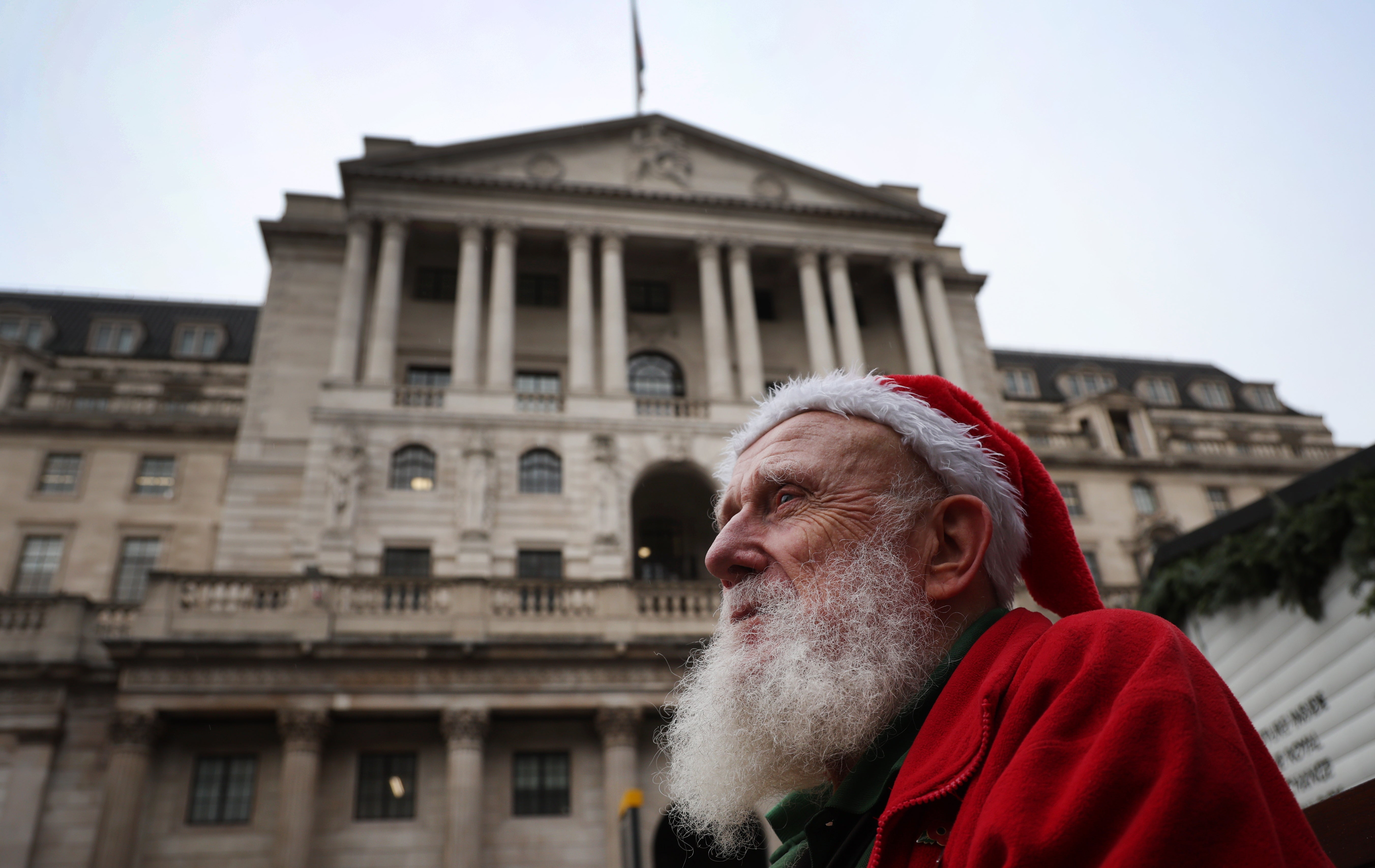Bank of England MPC plays Scrooge as high interest rates look set to stay
Markets think a cut to help borrowers could come in May, but James Moore says the pain could last a lot longer


There were no early Christmas presents from the Bank of England on Thursday, as interest rates were held at a painful 5.25 per cent
It was a widely-expected decision; what mattered more was what the Monetary Policy Committee (MPC) had to say about it. And there was nothing festive in its message – for borrowers, small businesses, or indeed anyone else.
Despite Britain’s stagnant economy, with nothing much expected in the way of growth expected for the end of this year or through most of 2024, three members of the MPC voted to raise even higher, to 5.5 per cent.
They were all external members: leading hawk, Catherine Mann, was joined by regular ally Jonathan Haskel and recent appointee Megan Greene. They believe that, while jobs are getting harder to find, the labour market remains tight and wage rises are still too high for comfort. Service prices are still rising rapidly (6.6 per cent compared to the headline rate of inflation at 4.6 per cent) and there is scant sign of this easing.
The rest of the committee weren’t persuaded that this warranted a further rise (and it would have prompted howls of anguish from businesses and homeowners alike) but they were hardly more optimistic. “Too early to conclude that services price inflation and pay growth were on a firmly downward path,” they warned, adding that the risks to inflation – still higher in Britain than the US or Eurozone – remain “to the upside”.
As a whole, the MPC was at pains to stress that it will raise rates again if it thinks those inflation risks are starting to run too hot. The tone could scarcely have been more different to the US Federal Reserve, which set the markets alight overnight with talk of perhaps three rate cuts next year.
Ruth Gregory, deputy chief UK economist at Capital Economics, noted markets are pricing in relief for borrowers in Britain as soon as May. However, she is not persuaded: “We are still convinced that the Bank will cut rates later than the Fed (Q1 2024) and the European Central Bank (Q2 2024)…The Bank continued to sound hawkish.”

I agree with her; there seems little hope of an early cut. It is worth taking a step back here and considering the context: the MPC took a lot of political heat for being too slow to act when inflation suddenly took off, creating a horrible cost of living crisis and leaving Britain’s poorest in a nasty bind. Some on the government benches – vocal supporters of Liz Truss – were particularly scathing, blaming the Bank for the failure of her premiership rather than her own decisions. While that is patently ridiculous, some of the more measured criticism has drawn blood.
Unless inflation shows a sustained and faster-than-expected fall towards the 2 per cent target, along with a slowdown in wage settlements and a rise in unemployment, I expect them to hold the line; from the third quarter of next year, rates should start to come down but progress will be slow and cautious.
None of this is good news for Rishi Sunak. The Office for National Statistics delivered a nasty surprise with its estimate of a 0.3 per cent fall in GDP in October and recession remains a distinct possibility.
“With the lending environment for small firms having become far less hospitable, they are increasingly less able to get the funding they need to invest for the future – or even to keep going,” warned Martin McTague, chair of the Federation of Small Businesses.
That one is on the MPC, but just as Sunak sought to claim credit for the work its members have done in halving inflation this year, he will take at least some of the blame if McTague is right to say the “economic damage” from high interest rates is “setting in”.
Jeremy Hunt’s autumn statement is expected to deliver a 0.25 per cent boost to GDP but voters aren’t likely to notice if they’re struggling with their mortgages. So, no Christmas cheer for Sunak from the MPC, or for anyone other than perhaps savers. And there’s probably not much happiness in the New Year either.
Join our commenting forum
Join thought-provoking conversations, follow other Independent readers and see their replies
Comments